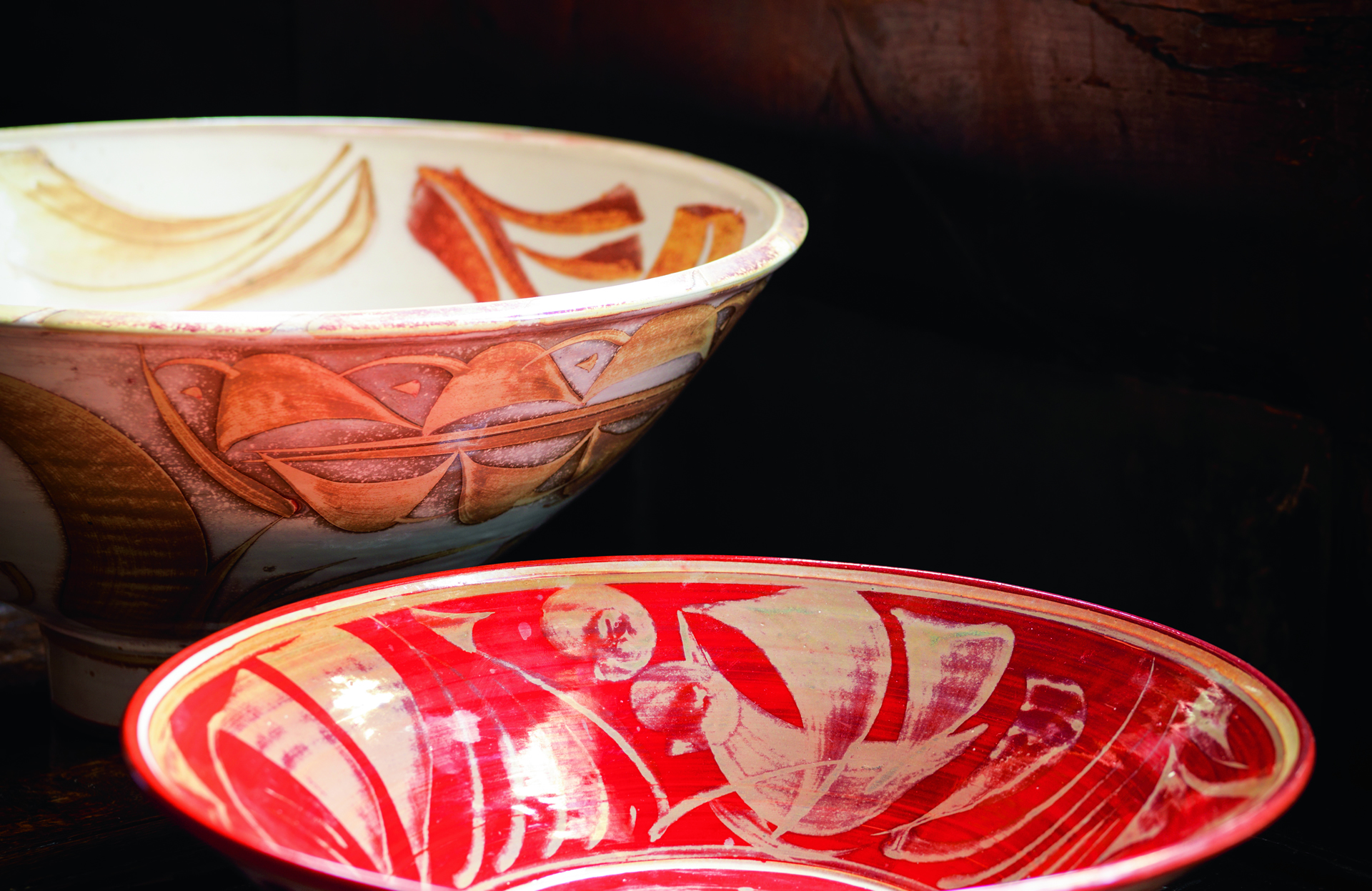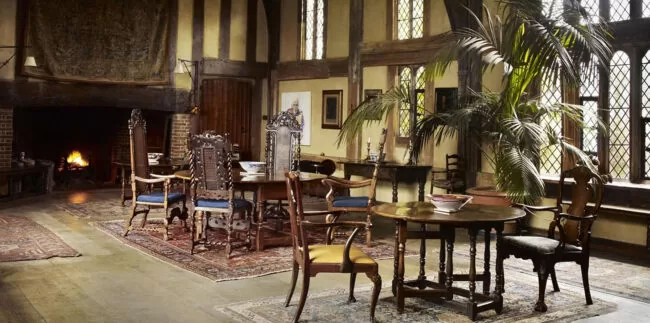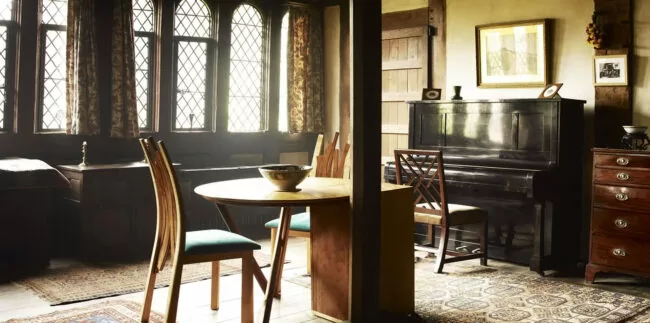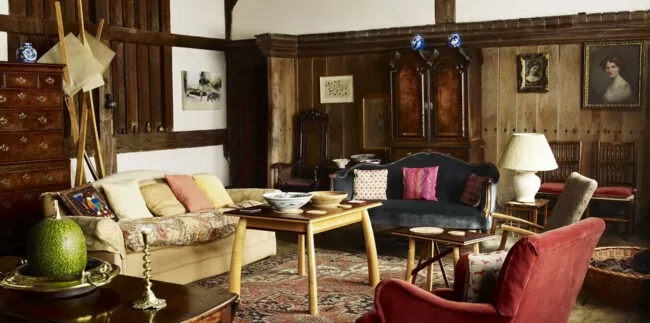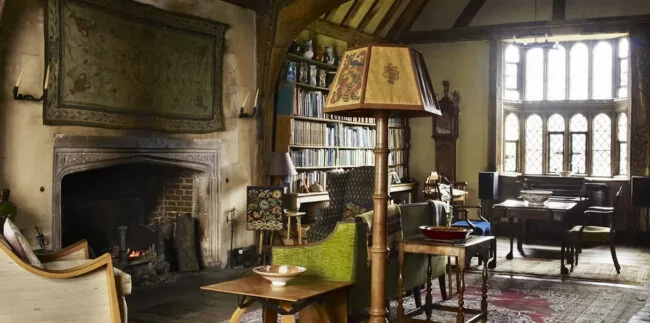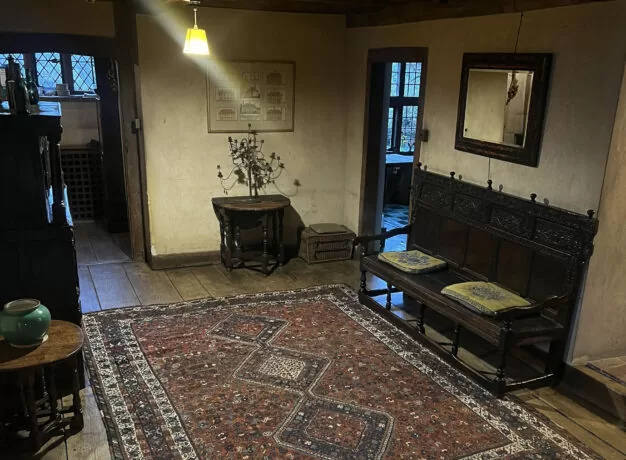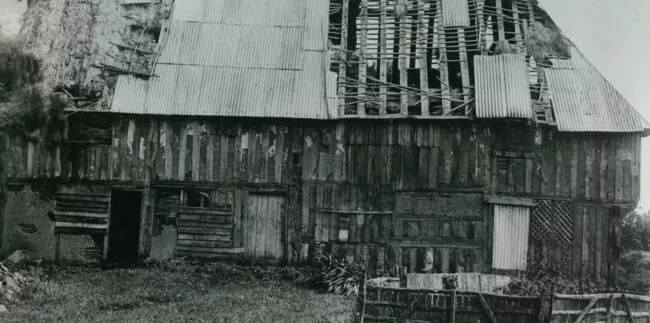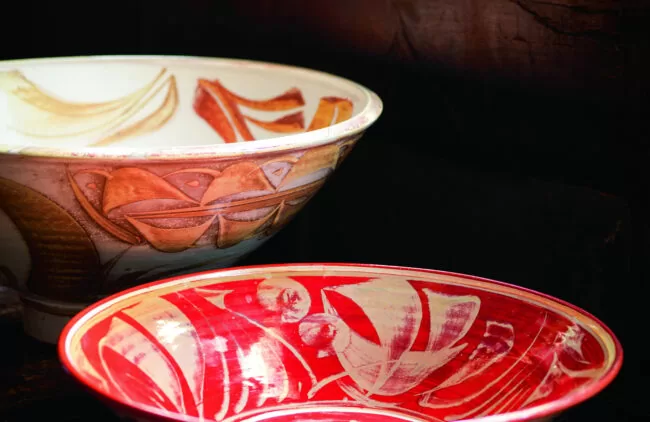Collections
The house was furnished by Nathaniel and Daisy Lloyd with a mix of solid, hand-crafted furniture that they picked up from salerooms and dealers, much of it dating from the seventeenth and eighteenth centuries.
They chose tapestries to decorate the walls of the older part of the house and Daisy developed a taste for collecting samplers. Her embroidery skills, and those of her children, were employed to make cushions and seat covers. Much of this remains, although a portion was sold off in 1994 as part of a family settlement.
To fill in the gaps, Christopher Lloyd commissioned some striking pieces of contemporary furniture from the designer Rupert Williamson. He also acquired studio pottery from Alan Caiger-Smith of the Aldermaston Pottery. The image below shows Christopher in the Yeomans Hall with examples of work by these craftsmen given to him by his friends on his 80th birthday.
A striking feature of the Lloyd family at Great Dixter through the twentieth century was their reluctance to part with anything, however minor. The result is an extraordinary collection of material in the archive that charts the story of the house, the garden, and individual family members.
Many of the plans, drawn up by Edwin Lutyens during the restoration and extension of the house, are still in the house. Nathaniel Lloyd subsequently became a practicing architect, as well as an eminent architectural historian, and much of the material associated with his writing remains in the archive. He, together with some of his children, was a keen photographer so the visual documentation of life at Great Dixter is extensive.
In 2015 Alan donated to Great Dixter over 300 pieces of pottery through the Arts Council Cultural Gifts Scheme, dating from the 1960s to the closure of the Aldermaston Pottery in 2006. They are distributed throughout the house with some held in reserve in the Billiard Room and can be seen on a visit to the public rooms or by appointment.
There are thousands of letters by and to family members, as well as countless bills and receipts associated with the running of the house.
Christopher Lloyd was a master of the written word, whether in notes, letters, or published works and these too form a major element of the archive. Sustained efforts have been made in recent years to house and document the archive so that it is accessible to researchers.
Click here to see one of the letters.
To find out more please contact our curator Roy Bridgen at [email protected]
